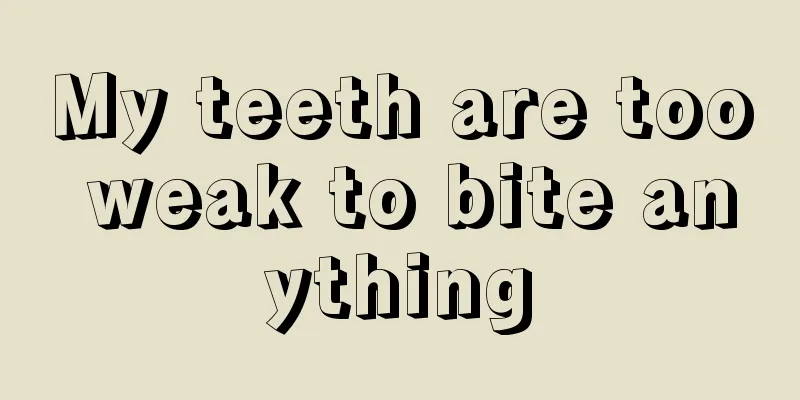Will kidney stones turn into uremia?

|
Kidney stones are a very common stone disease. When the stones are relatively small, there may be no symptoms, but larger stones will cause pain. The treatment of kidney stones is directly related to the size of the stones, and small stones can be treated with medication. Large stones or those with more obvious symptoms may require surgical treatment. Some people don't know much about stones and worry that they may develop uremia. So, will kidney stones turn into uremia? Let’s take a look below. Can kidney stones lead to uremia? Severe kidney stones, if not treated effectively, may also lead to uremia. For example, if the stones are large, or multiple kidney stones, kidney stones that lead to severe hydronephrosis, etc., if not treated in time, it may cause renal damage and develop into uremia. Kidney Stone Treatment Treat the symptoms first. If analgesics are used during an attack of colic, if concurrent infection or obstruction is found, the infection should be controlled first according to the specific situation. If necessary, ureteral catheterization or pyelostomy should be performed to ensure smooth urine drainage, so as to control the infection and prevent renal function damage. At the same time, we actively look for the cause of the disease, formulate treatment and prevention plans according to different components and causes, solve the problem fundamentally, and try to prevent the recurrence of stones. 1. General treatment (1) Drinking plenty of water may help push and flush small stones out with large amounts of urine. Increased urine output can also help control infection. (2) Adjusting diet: Dietary composition should be determined according to the type of stones and urine acidity and alkalinity. Patients with calcium oxalate stones should avoid a high-oxalate diet and limit the intake of foods such as spinach, beets, tomatoes, nuts, cocoa, and chocolate. Calcium intake should be restricted for patients with idiopathic hypercalciuria. Eat a low-salt diet and control sodium intake. People with high uric acid should eat a low-purine diet, avoid eating animal offal, and eat less fish and coffee. (3) Remove the inducing cause. For urinary stones caused by pathological factors, the primary disease should also be actively treated. Actively treat the causes of stone formation to prevent stone formation and recurrence. 2. Symptomatic treatment (1) Antispasmodic and analgesic M-type cholecystokinin receptor blockers can relax ureteral smooth muscles and relieve spasms. Intramuscular injection of progesterone can inhibit the contraction of smooth muscle and relieve spasm, and has a certain effect on pain relief and stone removal; the calcium channel blocker nifedipine has a certain effect on relieving renal colic; alpha receptor blockers have a certain effect in relieving ureteral smooth muscle spasm and treating renal colic. (2) Control infection. Urinary tract obstruction caused by stones is prone to infection, and magnesium ammonium phosphate stones often form in infected urine. This vicious cycle makes the condition worse. In addition to actively removing stones to relieve obstruction, antibiotics should be used to control or prevent urinary tract infections. (3) To eliminate hematuria, hydroxybenzylamine or tranexamic acid can be used to eliminate hematuria that is obvious to the naked eye. 3. Treatment according to different components and causes (1) Hypercalciuria ① Primary hypercalciuria can be treated with thiazides and potassium citrate. In addition to thiazides and potassium citrate, patients with absorptive hypercalciuria who cannot tolerate these drugs need to use sodium cellulose phosphate. Those with hypophosphatemia need to use orthophosphate instead. ② Actively treat associated diseases of hypercalcemia. When hypercalcemia crisis occurs, emergency treatment is required. First, use normal saline to expand the volume as quickly as possible, and use loop diuretics such as furosemide to increase urinary calcium excretion; bisphosphonates are the main drugs for treating hypercalcemia, which can effectively inhibit osteoclast activity and reduce bone reabsorption. Surgical removal of the parathyroid glands is the treatment of choice for patients with primary hyperparathyroidism and symptomatic hypercalcemia or asymptomatic nephrolithiasis. When patients have symptomatic or obstructive renal stones in the absence of a hypercalcemic crisis, treat the stones first. (2) Renal tubular acidosis is mainly treated with alkaline drugs to slow down stone growth and new stone formation and correct metabolic disorders. (3) Hyperoxaluria Primary hyperoxaluria is difficult to treat. Vitamin B6 can be tried, starting with a small dose and increasing the dose as the effect decreases. At the same time, drink plenty of water and limit foods rich in oxalate, which can reduce the oxalate level in urine to normal. (4) For high uric acid, low-purine foods and drinking plenty of water can reduce the concentration of uric acid in urine. (5) For homocystinuria, appropriate restriction of protein diet and use of cystine-lowering thiol drugs can be used for treatment. (6) Infected stones should be removed according to the patient's condition, and appropriate antibiotics should be selected to control urinary tract infection. 4. Surgical treatment When pain cannot be relieved by medication or the stone is large in diameter, surgical treatment should be considered. These include: ① Extracorporeal shock wave lithotripsy (ESWL) treatment. ② Placement of a stent in the ureter can also be combined with ESWL treatment. ③ Ureteroscopic lithotripsy. ④Percutaneous nephrolithotomy. ⑤Laparoscopic lithotomy. 5. Emergency treatment Renal colic and infection should be treated promptly. Antibiotics should be used promptly for infection, and renal puncture and drainage can be performed if necessary. Renal colic can be treated with anticholine, progesterone, and calcium channel blockers. If necessary, pethidine can be injected for analgesia. For patients with bilateral ureteral stones and obstruction and anuria, immediate surgical stone removal may be considered. |
<<: How to reduce fever during breastfeeding
>>: What to do if you have diarrhea due to uremia
Recommend
What are the effective treatments for lung cancer? Four methods are the most effective in treating lung cancer
Expert introduction: Generally, in the early stag...
Is it normal for red wine to taste sour?
It is normal for red wine to taste sour when you ...
What are the benefits of eating boiled green dates
Everyone must have eaten green dates frequently, ...
Experts explain the symptoms of esophageal cancer at different stages of the disease
According to the severity of esophageal cancer, t...
Quick solution to belching
Belching is a relatively common phenomenon, which...
Did you know that early-stage laryngeal cancer does not require laryngeal surgery?
Self-examination of skin tumors, symptoms of lary...
What should you not eat if you have uterine cancer
Uterine cancer is very harmful and affects people...
How to tie children's hair to look good
With the openness of people's minds, there is...
What are the symptoms of heart pain
There are many problems with the human heart, and...
Summer vacation schedule for middle school students
High school is a very important period for studen...
How to recover quickly after nasopharyngeal cancer surgery?
How to recover quickly after nasopharyngeal cance...
What are the functions and effects of Anemarrhena
Anemarrhena asphodeloides is often used in daily ...
Will I get sick if I wash my hands frequently?
Everyone knows that we need to wash our hands bef...
How long does it take for the side effects of ultrasonic knife to appear
Nowadays, beauty salons can perform more and more...
Does strong smell of urine during pregnancy mean I’m having a boy?
During pregnancy, women's eating and living h...









